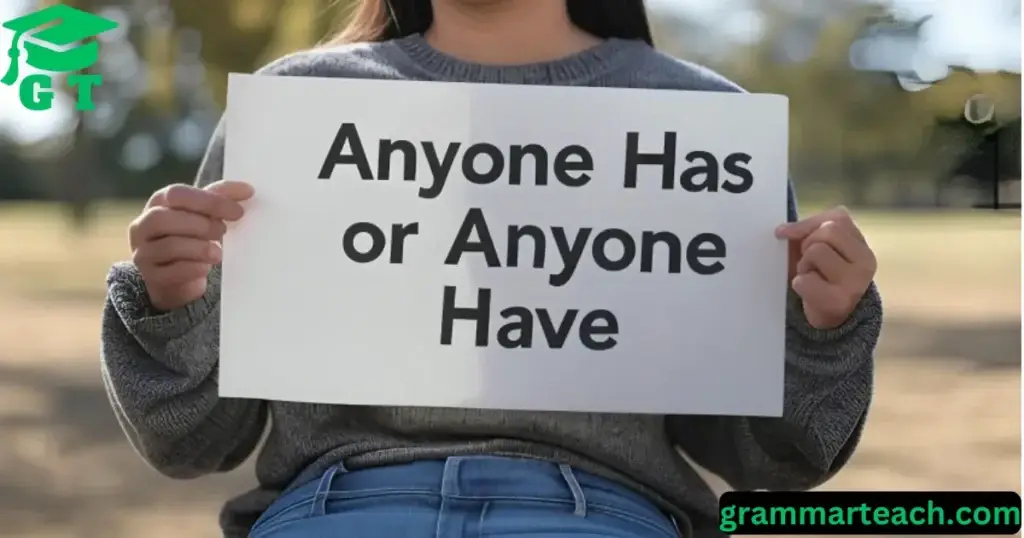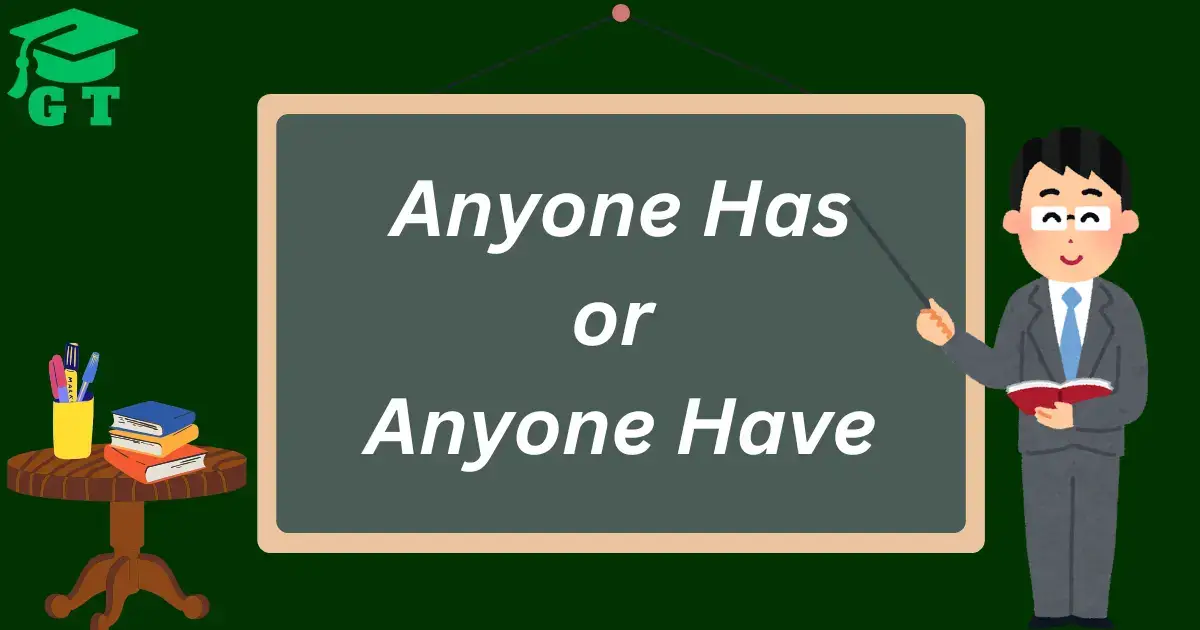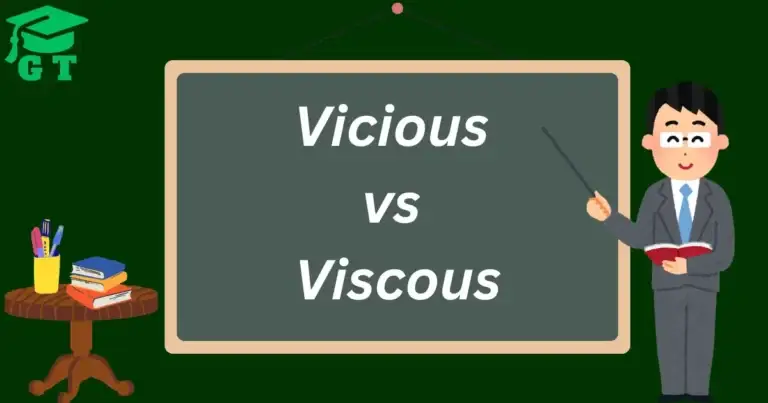Have you ever caught yourself asking, “Is it ‘anyone has’ or ‘anyone have’?” You’re not alone—and you’re not wrong to question it. These two phrases trip up native and non-native English speakers alike because they look similar but follow different grammatical rules. It’s one of those subtle quirks that can easily sneak past you when you’re writing an email, speaking in a meeting, or helping your child with homework.
Understanding this difference matters more than you might think. Whether you’re drafting a blog post, applying for a job, or simply having a conversation, using the correct form—”anyone has” or “does anyone have”—can make your communication clearer and more professional. In this guide, we’ll break down the rules, provide easy-to-remember examples, and give you the tools you need to never mix them up again.
Anyone Has vs Anyone Have – What’s the Difference?

In English grammar, indefinite pronouns like “anyone” are treated as singular, meaning they require singular verbs. This means that when using “anyone” in a statement, you should pair it with the singular verb “has.” For example, the sentence “Anyone has finished the project” follows the rule of subject-verb agreement, where the singular subject “anyone” is matched with the singular verb “has.” This rule holds true even though “anyone” may seem to refer to multiple people, as it’s considered a singular pronoun in grammar.
The confusion often arises with the phrase “anyone have,” which may sound natural in casual conversations, particularly in questions. However, this construction is incorrect unless it’s paired with an auxiliary verb like “does.” The phrase “Does anyone have the time?” is grammatically correct because the auxiliary verb “does” ensures proper agreement. In these cases, the auxiliary verb makes the subject-verb agreement work, allowing “have” to be used correctly with the singular subject “anyone.” Without “does,” the sentence would not follow the standard grammatical rules of subject-verb agreement.
What Is “Anyone Has”?
Definition
“Anyone has” is a grammatically correct phrase where:
- “Anyone” = singular subject
- “Has” = third-person singular form of “have”
Together, they follow the standard subject-verb agreement rules in English.
Usage in Sentences
Let’s look at this in action:
- If anyone has seen my phone, please let me know.
- We’ll leave as soon as anyone has an update.
- I’m not sure if anyone has responded to the email yet.
These are all statements or dependent clauses where “has” is used correctly after the singular subject “anyone.”
Contextual Usage
- Formal writing: Emails, reports, academic papers
- Informal speech: Everyday conversations
- Instructions or announcements: “If anyone has questions, please ask now.”
It’s grammatically clean, widely accepted, and should be your go-to in most written contexts.
What Is “Anyone Have”?
Definition (On Its Own)
Alone, “anyone have” is incorrect in most situations.
You might hear:
- Anyone have an extra charger?
But this is technically missing a helping verb. What it should be is:
- Does anyone have an extra charger?
When “Anyone Have” Is Acceptable
Only when it’s used with an auxiliary verb like does, did, or doesn’t.
Here are some correct uses:
- Does anyone have any suggestions?
- Did anyone have any issues with the test?
- Does anyone have a map of the area?
These constructions turn the phrase into a question, which requires a helping verb in English.
Incorrect Usage Examples
- Anyone have a question?
- If anyone have time, we’ll meet after work.
- Does anyone has a pencil?
All of these misuse either the base verb or skip necessary helping words.
Read More: Synonyms for No 30+ Better Ways to Say No in Any Situation
Key Differences Between “Anyone Has” and “Anyone Have”

To help you remember, here’s a comparison table that lays it all out:
| Aspect | Anyone Has | Anyone Have |
| Definition | Statement with singular subject + singular verb | Used only with helping verb in questions |
| Common Usage | Declarative sentences | Questions (with auxiliary verbs) |
| Context | Emails, articles, instructions, casual speech | Questions, conditional clauses |
| Grammar Role | Subject (anyone) + 3rd person verb (has) | Subject (anyone) + base verb (have) with auxiliary like “does” |
| Common Mistakes | Using “has” in questions (e.g., Does anyone has) | Omitting “does” before “anyone have” |
Example Scenarios to Illustrate the Difference
Here’s how these phrases play out in real life:
1. Office Setting
- If anyone has any ideas for the meeting, add them to the agenda.
- Does anyone have any updates on the client project?
2. Classroom
- Anyone who has completed the quiz can leave early.
- Does anyone have a red pen I can borrow?
3. Group Chat
- Let me know if anyone has seen my message.
- Hey guys, does anyone have the link to the Zoom call?
Notice how “anyone has” fits into the statements, while “does anyone have” works for questions.
Why Do People Confuse “Anyone Has” and “Anyone Have”?
This grammar mix-up is totally understandable. Here’s why it happens so often:
- “Anyone” sounds plural
It feels like it refers to more than one person, right? But grammatically, it’s singular. - Casual speech drops helping verbs
In conversations, people say things like “Anyone have a light?” even though it’s technically missing “Does.” - Inconsistent exposure to grammar rules
English learners and even native speakers may not have learned why this is wrong—just that it “sounds” okay. - Similar confusions exist
People also wonder:- “Has anyone or have anyone?” (Correct: Has anyone)
- “Does anyone has or have?” (Correct: Does anyone have)
- Overcorrection
Some people get nervous and try to be overly formal, accidentally saying “Does anyone has…” thinking it’s more proper.
Synonyms & Antonyms
Let’s break down key words in the phrase and list their synonyms and antonyms. This can help you better understand their usage.
| Word | Synonyms | Antonyms |
| Anyone | Anybody, somebody, whoever | No one, nobody |
| Has | Possesses, owns, contains | Lacks, needs, misses |
| Have | Hold, experience, receive | Lack, miss, want |
These aren’t always interchangeable in grammar, but they’re helpful for context and vocabulary-building.
Which One Should You Use? (Practical Tips for Writers)
Want a quick way to remember which is right? Here’s how:
Easy Rule:
- Use “anyone has” in regular statements.
- Use “does anyone have” in questions.
- Avoid “anyone have” on its own.
Grammar Tip:
Think of “anyone” like “he” or “she.”
You’d say “She has a question,” not “She have a question.”
Same thing with “anyone has.”
Cheat Sheet:
- If anyone has… ✔️
- Does anyone have…? ✔️
- Anyone have…? (Missing “does”) ❌
- Does anyone has…? (Wrong verb form) ❌
Print this out or save it somewhere until it becomes second nature!
Read More: Synonyms for Biodiversity 30+ Alternatives for Better Writing
Final Thoughts
Understanding the difference between “anyone has” and “anyone have” not only helps you write more clearly, but also boosts your confidence when communicating in both personal and professional settings. These subtle grammar rules might seem insignificant at first, but mastering them can significantly improve how your message is perceived. Remember: clarity is power, and using the right phrase helps your readers or listeners focus on what you’re saying—not how you’re saying it.
So the next time you’re faced with this grammatical choice, take a breath and think it through. If you’re making a statement, stick with “anyone has.” If you’re asking a question, go with “does anyone have.” Keep practicing, and soon this rule will become second nature. Grammar doesn’t have to be scary—it just takes a little attention and a lot of usage. Keep learning, keep writing, and keep growing!




